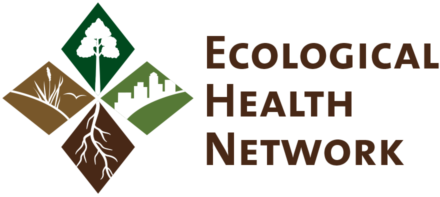Restoration in Action
EHN is building a global network of sites, hubs, and regional networks to advance the science and practice of ecological restoration. This work has been guided by organizational meetings with site and hub representatives, partners, and allies from six continents (South America, Africa, Asia, Europe, North America, and Australia).
In a hub, a single organization or institution coordinates and assists a number of interlinked sites. For example, Gondwana Link is an EHN hub working to restore habitat across 1,000 km of land in South-Western Australia. It has multiple restoration sites. Three of these sites have been identified as EHN sites.
EHN sites may be independent sites or part of an EHN hub. They may include, for example, farms, grasslands, forests, urban areas, and protected lands. They also may be referred to as complex sites when they include a variety of ecosystems and/or land uses.
Regional networks can be in one or more countries. They organically grow out of the collaborative work of EHN sites and hubs. The Four Islands EcoHealth Network, founded in February 2020 at the EHN Hobart Workshop, is an example of a regional network collaborating among sites and hubs of the North and South Islands of Aotearoa/New Zealand, Tasmania, and the Australian mainland.
We are also identifying opportunities and gaps, such as native seed and plant material supplies in the northeastern part of the United States, and addressing them with strategic planning and networking. One example of this is our Seed & Plant Supply Chain Program, directed by Eve Allen.
Our long-term sites and hubs aim to:
- Create opportunities to access additional financial, scientific, and organizational resources.
- Integrate public health practice and research into the work of restoration sites.
- Show how human and population health is affected by ecosystem health.
- Disseminate, share, and learn from research and narratives on the intersection of ecological restoration and human health.
- Implement and share research and practices that will address key knowledge gaps.
- Enable members to share, develop, and discuss their restoration-related data and experiences.
- Coordinate restoration activities that link EHN sites and hubs for landscape-scale solutions.
- Strengthen the roles of Traditional Owners and Indigenous people in all aspects of ecological restoration.
- Influence policy to favor prevention and restoration.
How does EHN engage with hubs, sites, and regional networks?
EHN's core team includes a Science Director to identify and address key knowledge gaps and advance scientific research, communication, and publishing across all sites and hubs; Program Directors to plan, organize, and develop projects and programs, such as the Seed & Plant Supply Chain Program, that contribute to the organization's mission and support our allies; Regional Ambassadors who identify new sites and hubs, facilitate field research, data collection and sharing, and other information sharing; Interns and Visiting Practitioners and Educators to assist with and learn from ecological and social strategies at sites and hubs; a Communications Manager to facilitate communication among sites, hubs, and regional networks, manage our electronic communication tools, and help tell our stories; and an active Steering Committee engaged in dynamic strategic planning, relationship building, and oversight. Our Partners and Allies include scientists, writers, artists, environmental justice activists, public health professionals, sociologists, economists, members of Indigenous communities, universities, nonprofits, policymakers, government representatives, and site neighbors and residents.
We have in-person meetings and workshops, write opinion pieces and scientific papers together with people affiliated with EHN sites and hubs, and use electronic communication tools to plan and share ideas. As we grow, so will the ways that collaborate across cultures and continents.
EHN Hubs
- Acción Serrana (Argentina)
- Fundación Global Nature (Spain)
- Ecocean Northwest Coastal Mediterranean Hub (France and Spain)
- Atlantic Forest Restoration Pact (PACTO) (Brazil)
- Gondwana Link (Western Australia)
- Great Eastern Ranges (Eastern Australia)
- North East Bioregional Network (Tasmania, Australia)
- People, Cities, & Nature Programme (New Zealand)
- Reconnecting Northland (New Zealand)
- Northwestern Plains Transboundary Region (Canada & USA)
- Lower Sugar River Regenerative Agriculture District (Wisconsin, USA)
- Madagascar Research and Conservation Program, Missouri Botanical Garden (Madagascar)
- Fennoscandian Green Belt (Finland)
EHN Sites
- Matutu (Brazil)
- Marine Innovation and Research (MIR) (Marseille, France)
- Port of Fréjus – Rehabilitation of Fish Nursery Functions (France)
- Biocultural restoration in the Araucaria araucana xeric forest (Caviahue, Argentina)
- Qvidja Farm (Southwest Finland)
- Shaw Nature Reserve (St. Louis, Missouri, USA)
- Wolwekraal Nature Reserve (Prince Albert, Karoo, South Africa)
- Margaret River Catchment (Western Australia)
- Lower-Southwest EcoHealth (Western Australia)
- Albany and Denmark Catchments (Western Australia)
- Nowanup Boodja (Western Australia)
- Ngadju Country (Western Australia)
- Kosciuszko to Coast (Eastern Australia)
- Waterton Lakes National Park and Blood Reserve (Southwest Alberta, Canada)
- Fort Belknap Native Seed and Grassland Restoration Community Conservation Project (Central Montana, USA)
- Analalava Forest (Madagascar)
- Ankafobe Forest (Madagascar)
- Ankarabolava-Agnakatrika Forest New Protected Area (Madagascar)
- Oronjia Forest New Protected Area (Madagascar)
- Vohibe Forest New Protected Area (Madagascar)
EHN Regional Networks
The Four Islands Ecohealth Network (FIEN) is a network of organizations undertaking restoration and restorative activities within Australia and Aotearoa New Zealand, aiming to improve human health through repairing native ecosystems. The initial concept for this regional network came out of the EHN's Hobart, Tasmania, workshop in 2020. FIEN will value-add to the efforts of its constituent organizations by expanding expertise, enabling large-scale analysis and connectivity across adjacent regions, expanding interdisciplinary research and outreach by linking research with experience-based and Traditional Ecological Knowledge-based restoration activities and collectively disseminating results through impactful science communication. Dr. Adam Cross, our Science Director, is based in Perth, Australia, and so has hands-on engagement with the Four Islands EcoHealth Network, our first regional network in our constellation of members (which also includes sites and hubs).
EHN Programs
Seed & Plant Supply Chain Program (northeastern United States)
Photo by Thibaud Aronson
